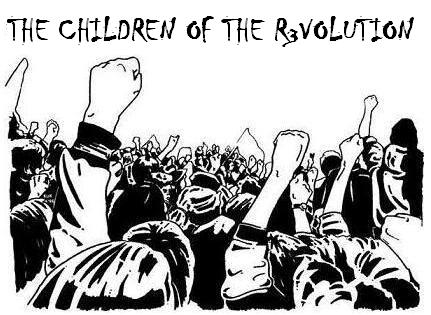BY HARIOLOR
“Whereas it appeareth that however certain forms of government are better calculated than others to protect individuals in the free exercise of their natural rights, and are at the same time themselves better guarded against degeneracy, yet experience hath shewn, that even under the best forms, those entrusted with power have, in time, and by slow operations, perverted it into tyranny; and it is believed that the most effectual means of preventing this would be, to illuminate, as far as practicable, the minds of the people at large, and more especially to give them knowledge of those facts, which history exhibiteth, that, possessed thereby of the experience of other ages and countries, they may be enabled to know ambition under all its shapes, and prompt to exert their natural powers to defeat its purposes.”
With this tremendous run-on sentence, Thomas Jefferson, third president of the United States of America, opened a bill written for the establishment of a public school system with limited government subsidy that would educate “the people at large” to better protect them against the ambitions of those to whom power was given in our Republic.
Over the intervening centuries his plans have been changed dramatically, but the seeds of his intent still exist in this great country. You have at your disposal a singular opportunity to study whatever draws your interest without fear of censorship or retribution. Children here have the privilege of receiving a (usually) fully-subsidized education by which they are provided with the tools and knowledge to become positive contributors to society and informed voters. This value of education is so strongly seated at the foundation of our country that it is considered by many to be an implied right of citizenship, though I would warn that it is not specifically stated as such anywhere in our founding documents (see "Your American Privileges" for a further explanation of other common privileges that are not necessarily rights).
Alas, you and your children will find that, as with the many other freedoms your citizenship brings you, there are pitfalls as well. Your local educational system will be subject to the political and moral influences of parents, teachers, government, and benefactors. You may also find that many in your local school system believe so strongly in the “right” to education that they believe knowledge itself should be somehow granted by that right, without hard work or risk of failure. Should you be disillusioned by these facts, fear not, for there exist private educational institutions that offer a still broader and more rigorous education than you might find in your public schools. You are free to choose to send your children to these schools, provided you possess the often substantial income necessary to pay their tuition.
As an American, upon completion of a basic curriculum, all citizens have the opportunity to attend an institution of higher learning, though it will be up to you to demonstrate your qualification for admission and ability to pay (I hope you worked hard in school). Once admitted, you will find that passing requires far more work than it did in your previous schooling, as our society does not yet view advanced education as a “right” on-par with primary education. For those who have financial or educational barriers to admittance, or who find the rigors of higher learning too stressful, many community colleges and technical schools are available to help you improve your employability, and to possibly prepare you for taking a shot at the American Dream of business ownership.
Your learning will not stop there, however. Our most sacred and inviolable right to Freedom of Speech means that you will be assaulted on all sides at all times of day by advertisements, news outlets, and special interests seeking your attention (indeed, you are experiencing it right now!) You will find that many Americans will draw from this information conclusions that differ from your own. Embrace this, for these differences are the strengthening threads in the fabric of our Republic. I encourage you to fully practice your freedoms by entertaining every opinion in your mind, and subjecting them all to the test of your own knowledge and the input of your fellow citizens. Be wary, though, for half-truths and outright lies are often permitted to slip through in the interest of preserving free discourse. It will be up to you, armed with your own intuition and the vast knowledge you have accumulated in your education, to sift the good from the bad. Much of what you encounter will be subjective, and your own intellect, experience and morality, forged and honed in the educational system, will be your only guides.
I end by offering a few pieces of advice to give you a jump-start on navigating the storm of information you will encounter here in America.
1. The most professional and somber delivery is often the most prone to half-truths. - Verify!
2. The same goes for the most impassioned opinions. - Verify again!
3. Hold fast to your beliefs, but debate them often and openly. Discourse is an opportunity for growth and fosters understanding.
4. Do not let your feelings be hurt by the expression of opinions different from your own, they are the bread-and-butter of free people.
5. Never stop learning. You have freer access to more information in America than anywhere else in the world. This is a treasure of incalculable value.
With this tremendous run-on sentence, Thomas Jefferson, third president of the United States of America, opened a bill written for the establishment of a public school system with limited government subsidy that would educate “the people at large” to better protect them against the ambitions of those to whom power was given in our Republic.
Over the intervening centuries his plans have been changed dramatically, but the seeds of his intent still exist in this great country. You have at your disposal a singular opportunity to study whatever draws your interest without fear of censorship or retribution. Children here have the privilege of receiving a (usually) fully-subsidized education by which they are provided with the tools and knowledge to become positive contributors to society and informed voters. This value of education is so strongly seated at the foundation of our country that it is considered by many to be an implied right of citizenship, though I would warn that it is not specifically stated as such anywhere in our founding documents (see "Your American Privileges" for a further explanation of other common privileges that are not necessarily rights).
Alas, you and your children will find that, as with the many other freedoms your citizenship brings you, there are pitfalls as well. Your local educational system will be subject to the political and moral influences of parents, teachers, government, and benefactors. You may also find that many in your local school system believe so strongly in the “right” to education that they believe knowledge itself should be somehow granted by that right, without hard work or risk of failure. Should you be disillusioned by these facts, fear not, for there exist private educational institutions that offer a still broader and more rigorous education than you might find in your public schools. You are free to choose to send your children to these schools, provided you possess the often substantial income necessary to pay their tuition.
As an American, upon completion of a basic curriculum, all citizens have the opportunity to attend an institution of higher learning, though it will be up to you to demonstrate your qualification for admission and ability to pay (I hope you worked hard in school). Once admitted, you will find that passing requires far more work than it did in your previous schooling, as our society does not yet view advanced education as a “right” on-par with primary education. For those who have financial or educational barriers to admittance, or who find the rigors of higher learning too stressful, many community colleges and technical schools are available to help you improve your employability, and to possibly prepare you for taking a shot at the American Dream of business ownership.
Your learning will not stop there, however. Our most sacred and inviolable right to Freedom of Speech means that you will be assaulted on all sides at all times of day by advertisements, news outlets, and special interests seeking your attention (indeed, you are experiencing it right now!) You will find that many Americans will draw from this information conclusions that differ from your own. Embrace this, for these differences are the strengthening threads in the fabric of our Republic. I encourage you to fully practice your freedoms by entertaining every opinion in your mind, and subjecting them all to the test of your own knowledge and the input of your fellow citizens. Be wary, though, for half-truths and outright lies are often permitted to slip through in the interest of preserving free discourse. It will be up to you, armed with your own intuition and the vast knowledge you have accumulated in your education, to sift the good from the bad. Much of what you encounter will be subjective, and your own intellect, experience and morality, forged and honed in the educational system, will be your only guides.
I end by offering a few pieces of advice to give you a jump-start on navigating the storm of information you will encounter here in America.
1. The most professional and somber delivery is often the most prone to half-truths. - Verify!
2. The same goes for the most impassioned opinions. - Verify again!
3. Hold fast to your beliefs, but debate them often and openly. Discourse is an opportunity for growth and fosters understanding.
4. Do not let your feelings be hurt by the expression of opinions different from your own, they are the bread-and-butter of free people.
5. Never stop learning. You have freer access to more information in America than anywhere else in the world. This is a treasure of incalculable value.








No comments:
Post a Comment